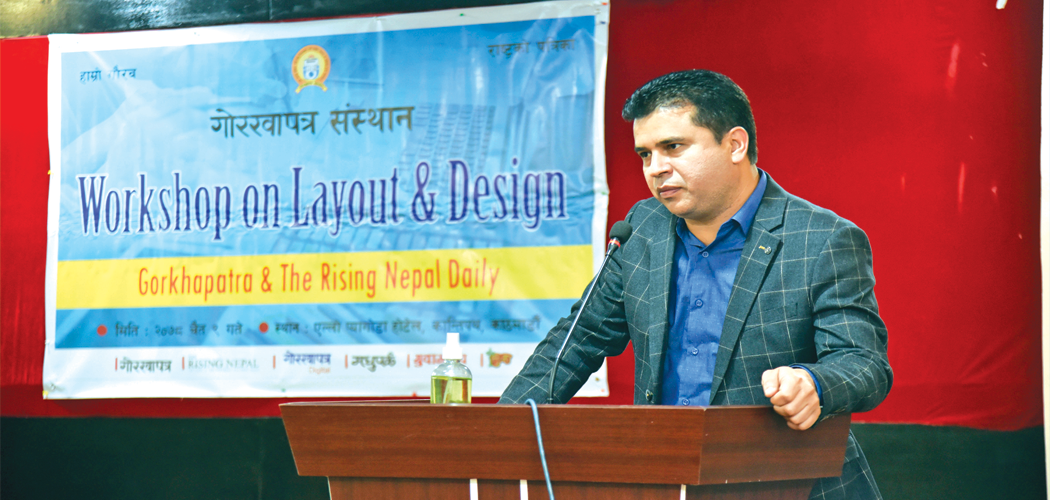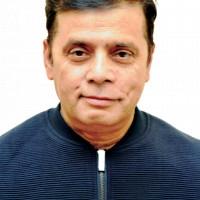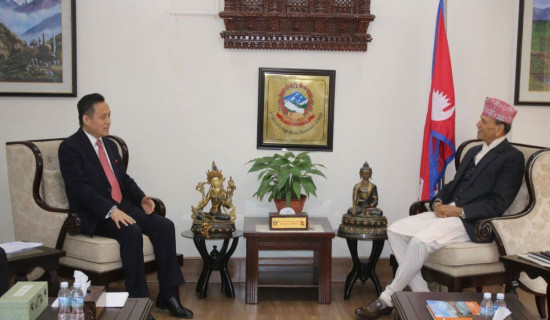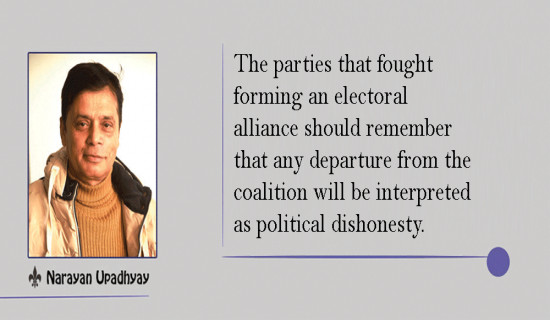- Thursday, 26 February 2026
Despite Challenges, Gorkhapatra Marches Ahead
Newspapers these days have encountered threats of different hues. The explosion of social media and online news outlets has led to a shrinkage of newspapers around the world. In recent years, coronavirus pandemic hit the newspaper business hard while the shortage of newsprints in Nepal and the global market buffeted the publishers.
Quandary
The slackening in the production of newsprint has posed a quandary for newspaper owners. Add to this the outbreak of wars in different parts that have disrupted the production and supply of newsprints. In the meanttime, the new fad of turning media houses, and government and non-government offices into 'paperless' workplaces has not helped the matter newspaper owners as it often leads to fall in the newsprint production.
Newspapers that survive on incomes from advertisements cannot often cope with a rising prices of paper, an outcome of shortate of newsprint in the market. The decrease in the publication of newspapers caused by nautral disasters, outbreak of contagious diseases, civil strifes can gradually lead to the closure of newspapers.
A good number of newspapers, reports suggest, have folded in recent years. A well-known American weekly, Newsweek, shuttered down, thanks to the slide in its readership with the explosion of the online media. Back home, an English broadsheet daily, the Republica, a sister publication of the Nepali language Nagrik Daily, folded after the publisher opted to stick to the online version of the English daily. Many other weeklies and dailies have shut down because of readers' traction towards the new media that include Facebook, Twitter, Instagram, Youtube, Google and news websites, which cater for news and views instantly.
In recent days, the nation's oldest Nepali and English dailies, Gorkhapatra and Rising Nepal respectively, published by the Gorkhapatra Corporation, have faced different problems. Crises like the lack of easy availability of newsprints at affordable prices, the COVID pandemic, the massive number of online news sites and disruption in the supply of newsprint caused by low demand have become a nagging problem for GC.
These crises left many readers wondering whether the GC management would opt for the online medium by stopping publishing the printed versions. However, this may not happen, at least for some years to come, though the management has now boosted the qulaity of its oneline portals lately. All GC publications are public property and therefore must remain active.
The state-owned dailies have won many hearts after the management successfully published and dispatched them to readers' doorsteps even as the country passed through challenging periods following the shortage of newsprint, deadly earthquake and outbreak of the coronavirus pandemic.
The oldest dailies and the monthly magazines are held in high esteem, not only for churning out news, views and, interviews, as they happen, but also for being a treasure trove of records of important incidents and events.
Gorkhapatra daily, first published some 122 years ago in 1901, is counted among the oldest newspapers in Asia and the world, and carries history as it comprises a vast array of news and information on the political, social and linguistic aspects of the nation.
The archive of Gorkhapatra provides gems of information to people belonging to different walks of life, scholars and researchers. Many opt for these dailies to ascertain the accuracy of news and information published or broadcast in other media. As the dailies provide government-related news and information, besides other information on events taking place in the country, with alacrity and accuracy, the management has given it more edge by making the layout of these papers attractive.
The state-owned dailies have won many hearts after the management successfully published and dispatched them to readers' doorsteps even as the country passed through challenging periods following the shortage of newsprint, deadly earthquake and outbreak of the coronavirus pandemic. Gorkhapatra Corporation kept on publishing the dailies when many privately owned media houses had shut down their papers.
Despite facing challenges, state-owned newspapers cannot function the way private newspapers do. The state has a prime role in disseminating information on the current state of
affairs, state-related issues as well as events that occur in every nook and cranny of the country and abroad.
Newspapers that have effectively discharged duties to the people and the state during challenging times such as the changing political situation and more recently the COVID pandemic and the Gorkha Earthquake must remain operational for the sake of the public and the nation.
Stellar Performance
Another important aspect that one should not forget about GC is - that it earns income to maintain its publications but also pay remuneration and salaries. Despite being a state-owned entity, it does not look to the government to budget for paying salaries, perks, or gratuity to GC staff. The government, however, extends support when the GC needs logistics to open new regional centres. To open its regional publication centre in Biratnagar, the corporation received assistance from the government.
As per reports, the management has now planned to open a regional branch in every province for which it has to get assistance from the Communications and Information Technology Ministry. Meanwhile, the newspaper receives a budget from the government for publishing its language pages. Having said all, we should admire GC for bringing out dailies and magazines despite facing various challenges.
In the meantime, the faith of readers, advertisers and the government in its various publications, mainly Gorkhapatra and Rising Nepal, has driven it ahead.
(Upadhyay is Managing Editor of this daily)

















